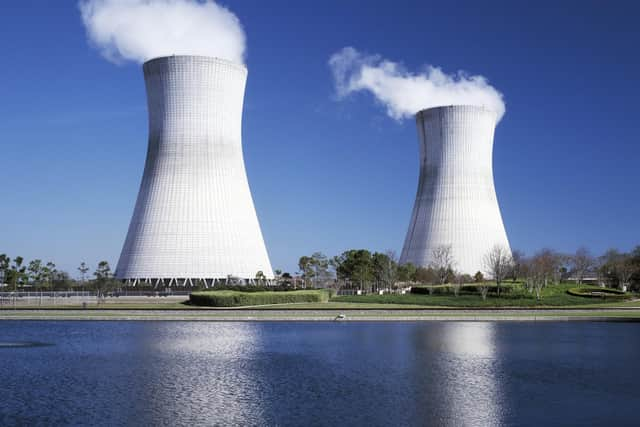The reaction to growing nuclear energy in Scotland was predictably thick-headed - Brian Wilson
Power can be switched on and off but energy policy takes decades to turn around. By the time past mistakes are inescapable, it is too late to reverse them.
The big mistake for 30 years was over-reliance on gas. Until 1990, it was illegal to turn gas into electricity. That changed with privatisation of the utilities, the run-down of coal and the “dash for gas”. It was cheap and quick to build gas-fired power stations.
Reliance on gas escalated even as the UK became a net importer. Gas provided baseload cover for not just coal but also nuclear. Warnings about risk were brushed aside. Then, hey presto, the chickens came home to roost.


I do not find much to disagree with in the UK Government’s new strategy, so long as nobody thinks it offers a quick fix. The only hope of relief for consumers and industry is that the global price of gas will head downwards.
The urgent need is for far more protection to be given to those who need it most, from a hardship certainly not of their making. Then there needs to be stronger focus on reducing demand. Innumerable schemes could usefully be pulled together into one great national drive.
New nuclear-build is sensible, embracing rapidly evolving technologies. As has been the case all along, nuclear should be seen as part of the solution for both essential baseload and net zero targets, far outweighing its downsides.
The Scottish Government’s response was predictably thick-headed. “Not here”, cried Michael Matheson, though nobody even bothered to suggest a Scottish site in face of political hostility. Mr Matheson will be long gone by the time we are reliant on nuclear power from the rest of the UK, with not a single job created here.
If it is the Scottish Government’s position that we should generate only from intermittent renewables balanced by imported gas and nuclear, they should say so. The pretence that renewables alone make us self-sufficient is illiterate.
The UK strategy commits to small modular reactors being developed by Rolls Royce. When the chief executive was interviewed, it was no surprise to hear a Scottish accent. Fortunately, it is not yet in the SNP’s powers to close down academic excellence, so Scots will continue to contribute disproportionately to the nuclear industry – while banned from practising it in their own land.
I support increased targets for offshore wind but targets deliver nothing. Projects will struggle unless planning timescales are curtailed and grid connections strengthened. The strategy document uses the “Saudi Arabia of renewables” line but where did we hear that before?
Once again, there will be few jobs unless there is investment in our ports and infrastructure. A good start would be for every penny of the £700 million from ScotWind licensing to be committed to that end, but Scottish Government responses suggest an intention to slither out of that obvious piece of ring-fencing. Why?
As for the North Sea, Ukraine may have changed the context but the basic argument was already there. The word “transition” does not mean an instant halt. Jobs need to be protected until there is something to transition to and increasing oil and gas imports in the meantime makes no sense at all.
A coherent strategy for a balanced energy policy now exists but the challenges of delivery remain formidable. Governments at all levels should work together to overcome them.
